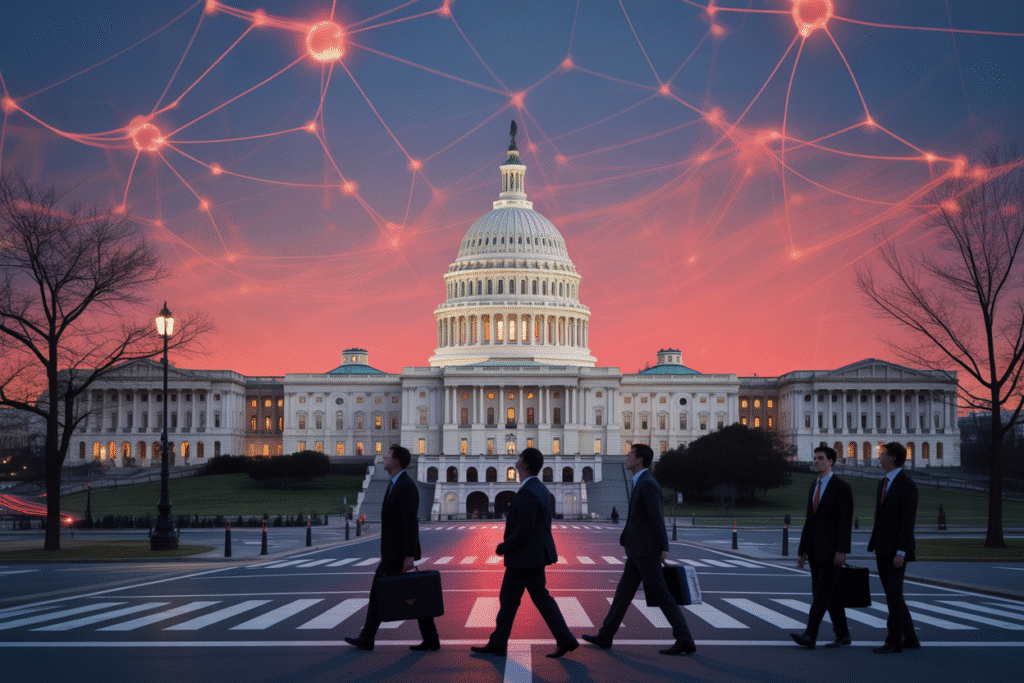Pentagon probes Microsoft, a missed YouTube manifesto, and ChatGPT’s sudden decline—three fresh AI politics firestorms in one night.
On the night of August 27, 2025, three AI politics bombshells detonated within sixty minutes. From the Pentagon to YouTube to your chat window, each story exposes fresh cracks in our tech-driven world.
Pentagon Cloud Shockwave
The bombshell dropped just after 10 p.m. on August 27, 2025. Incoming Defense Secretary Pete Hegseth took to social media and vowed a full-scale probe into Microsoft’s “digital escort program.”
His claim? Chinese Communist Party–linked engineers may have slipped hidden code into the Pentagon’s cloud. The phrase “We’re gonna find out” lit the fuse, and the internet exploded.
Why does this matter? Because AI politics and national security just collided in real time. Taxpayer dollars, foreign talent, and classified military data are now tangled in one messy knot.
Hegseth promised a third-party audit, paid for by the public, to comb through every line of code. If backdoors exist, the fallout could redefine how America handles AI regulation and tech outsourcing.
Silicon Valley defenders argue global talent keeps costs low. Defense hawks counter that any risk—no matter how small—is too big when nuclear codes float in the cloud.
The stakes? A single malicious update could cripple U.S. defenses. The debate over AI ethics, espionage, and job displacement for American engineers has never felt more urgent.
YouTube Manifesto Missed
While Washington argued over code, another crisis brewed in Minnesota. A would-be shooter uploaded a chilling manifesto to YouTube five hours before opening fire.
Nobody flagged it. Not the FBI, not Homeland Security, not the AI surveillance tools taxpayers fund to catch exactly this kind of threat.
Social media lit up with a simple question: How did every early-warning system miss a public confession? The failure sparked fury, memes, and conspiracy theories within minutes.
Critics point to bloated bureaucracies and overhyped AI promises. Supporters of mass monitoring insist the tools need more data, not less.
The tragedy forces a brutal cost-benefit analysis. Expanded AI surveillance might prevent future attacks, yet it also risks turning the country into a police state.
Privacy advocates warn that every new camera or algorithm chips away at civil liberties. Security hawks reply that dead innocents are the steeper price.
Caught in the middle? Ordinary citizens wondering if the promise of safety is worth the erosion of freedom—and whether the tech even works.
ChatGPT’s Sudden Stumble
While the nation reeled, ChatGPT users noticed something odd. The once-sharp assistant started stumbling over basic facts, forgetting context after just five prompts.
“Feels like it’s moving backwards,” one frustrated coder wrote. The post went viral, and soon thousands echoed the complaint.
Some blame rushed updates chasing investor hype. Others suspect cost-cutting measures that trimmed the model’s memory to save server bills.
The backlash cuts to the heart of AI politics and ethics. If the flagship product of a trillion-dollar industry can’t stay consistent, what does that say about the broader AI race?
Developers are already jumping ship to competitors like Gemini and Claude. Meanwhile, ethicists argue that unreliable outputs spread misinformation faster than any human could.
Investors once dazzled by AI potential now face a sobering question: Was the hype premature? And if so, who pays the price when flawed models enter hospitals, courtrooms, or newsrooms?
The episode underscores the need for transparent AI regulation. Without clear standards, the line between helpful tool and digital snake oil blurs fast.


